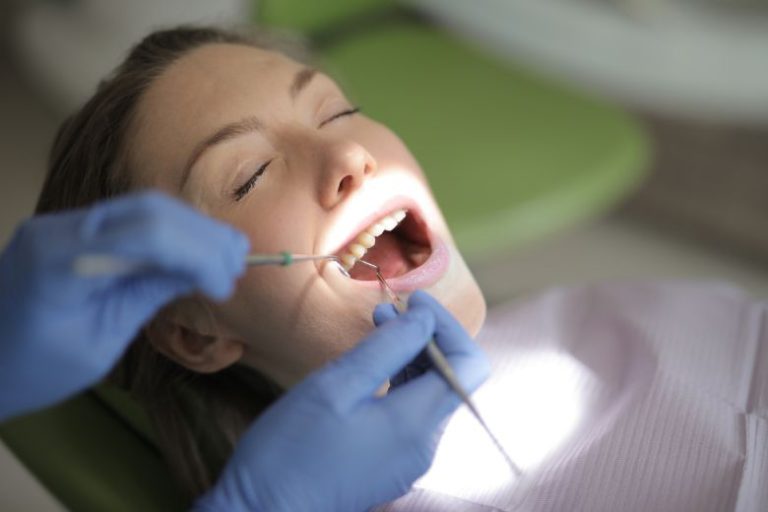Nutrition Tips For Ramadan
Nutrition Tips For Ramadan
By: Alaa Boumerhi, registered dietitian, reviewed by JM Nutrition Team of registered dietitians
“Do you have any specific nutrition tips for Ramadan?”
This is a question that many of our clients ask of our practitioners each and every year. And, while we provide Ramadan nutrition tips for our clients during nutritional counselling sessions, we felt it’s equally important to share this advice with a wider audience. Hence this blog post.
Nutrition Tips For Ramadan: Introduction
Ramadan, Islam’s holiest month, is a time of reflection, discipline, and increased devotion. During this time of the year, Muslims all across the world fast from sunrise until sunset. Nonetheless, ensuring appropriate nutrition outside of fasting hours is critical for preserving health and energy during this holy month. In this post, we’ll explore some important nutrition tips for Ramadan for optimum health and energy during the fast.
The Effects of Ramadan Fasting on Body Metabolism and Health
Before we provide specific nutrition tips for Ramadan, it’s critical that we address the effects of fasting on body metabolism and health.
Fasting during Ramadan involves prolonged periods of calorie restriction and altered eating patterns, which can have various effects on the body’s metabolism and overall health (Sanvictores et. al., 2023).
One of the primary changes that occur during fasting is a shift in the body’s energy source. In the absence of food intake, the body undergoes metabolic adaptations to conserve energy (Lessan & Ali, 2019).
During the fasting period, the body uses up stored sugar (glycogen) for energy. When that’s all used up, stored fat becomes the next source of energy, leading to fat breakdown for energy production. This metabolic adaptation can lead to improvements in sugar levels over time (Lessan & Ali, 2019).
In addition, research shows that fasting during Ramadan can have beneficial effects on cardiovascular health, such as reducing blood pressure and improving lipid profiles (Osman et al., 2020).
Not to mention that it has also been associated with improvements in inflammatory markers, oxidative stress, and markers of metabolic syndrome (Rahman, 2022).
Related: Metabolism Basics
However, it’s important to note that fasting may also pose certain challenges to health if not approached with mindfulness and proper planning.
Dehydration and nutrient deficiencies are some of the potential risks associated with fasting during Ramadan. It is, therefore, essential to adopt strategies to ensure adequate nutrition and hydration during the fasting period.
Key Nutrition Tips for Ramadan
By actively incorporating some nutrition tips into the Ramadan fasting routine, it can be ensured that the body receives the essential nutrients it needs to thrive while honouring the spiritual significance of this sacred month.
1. Include Balanced Meals
The first and likely the most important tip for Ramadan is to consume balanced meals.
To maintain energy levels and ward off fatigue during fasting hours, it’s crucial to fuel up with balanced meals with the aim to adhere to the Canadian food plate guidelines. These guidelines go beyond just what to eat. They’re about optimizing overall well-being, fuelling the body correctly and thriving throughout the holy month of Ramadan.
That is, let’s delve deeper into how the Canadian food plate can guide your meal planning for Suhoor and Iftar.
Suhoor
For Suhoor, the pre-dawn meal, make sure to fill 1/2 of your plate with colourful vegetables to provide essential vitamins and minerals, aid digestion and keep you feeling satisfied.
Reserve a 1/4 of your plate for lean protein sources like eggs or Greek yogurt, which provide sustained energy throughout the day. The remaining quarter of your plate can be filled with whole grain carbohydrates such as oats or whole wheat bread, offering complex carbs for long-lasting fuel.
Iftar
At Iftar, the meal that breaks the fast at sunset, follow a similar approach.
Fill half of your plate with a variety of colourful vegetables to replenish nutrients lost during fasting and aid digestion. Include lean protein options such as grilled chicken or fish, along with whole grain carbohydrates such as brown rice or whole wheat pasta, to refuel your body and promote muscle repair–something our sports nutritionists and dietitians always recommend.
2. Emphasize Hydration
This is an immensely important nutrition tip for Ramadan.
Hydration during Ramadan is crucial to help maintain energy levels, mental clarity and overall well-being (Maughan & Shirreffs, 2012).
With prolonged fasting periods and no water intake for extended hours, adequate hydration becomes essential to prevent dehydration and ensure optimal bodily functions throughout the fasting period, suggest our dietitian Nadja.
By prioritizing fluid intake between Iftar and Suhoor, the risk of fatigue, headaches, dizziness, and decreased cognitive function, can be mitigated. This allows for an energized fasting and daily activities engagement (Maughan & Shirreffs, 2012).
In addition to water, you can support hydration by incorporating hydrating foods into meals. Foods with high water content, such as watermelon, cucumber, oranges and lettuce can contribute to the overall fluid intake and help maintain hydration throughout the day.
Soups and broths are also great options to provide hydration while offering nourishment and satiety.
Related: The importance of drinking water
3. Practice Portion Control
This is another important Ramadan nutrition tip.
Portion control during Ramadan is vital to help balance and prevent overeating. With the altered eating schedule of Suhoor and Iftar, it’s easy to consume larger portions than necessary, leading to discomfort and digestive issues.
By being mindful of portion sizes and listening to your body’s hunger and fullness cues, you can enjoy satisfying meals without overindulging.
This approach helps regulate energy levels, supports digestion, and promotes overall well-being throughout the fasting month.
Additionally, portion control allows you to appreciate the spiritual aspect of Ramadan by fostering self-discipline and moderation in your eating habits.
4. Plan Meals Wisely
Some say planning is everything. And, in the case of Ramadan, it is equally important.
Planning meals wisely during Ramadan is essential for maintaining optimal health and well-being throughout the fasting period. With altered eating schedules and limited hours for food consumption, strategic meal planning becomes even more critical.
Take some time to plan your suhoor and iftar meals, make a shopping list, and stock up on nutritious ingredients. Having healthy options readily available will help you make better food choices throughout the month.
However, be careful when selecting foods. Try to prioritize nutrient-dense options to ensure your meals are not only delicious but also nutritious, balanced and supportive to your overall health goals. This is a key nutrition tip for Ramadan that should not be overlooked.
Here’s how to prioritize your meals wisely during Ramadan:
- Choose whole grain options such as oats, brown rice and whole wheat bread. These provide complex carbohydrates for sustained energy release.
- Include lean protein sources such as chicken, turkey, fish, legumes and tofu. These support muscle repair and satiety.
- Incorporate sources of healthy fats such as avocados, nuts, seeds and olive oil. These help promote heart health and provide satiety.
- Fill your plate with a variety of colourful fruits and vegetables to ensure adequate intake of vitamins, minerals and antioxidants.
- Include hydrating foods such as watermelon, cucumbers, oranges and soups. These help maintain hydration levels during fasting hours.
Equally important is the need to restrict certain foods when planning your meals during Ramadan. Here are some foods to be mindful of:
- Sugary drinks and desserts, such as sugary beverages, sweets and desserts. These can lead to energy spikes followed by crashes.
- Fried and processed foods, such as fried foods and fast-food items. These are often high in unhealthy fats, sodium and additives, and can contribute to digestive distress.
- Refined carbohydrates, such as white bread, pastries, and sugary cereals. These can cause rapid fluctuations in blood sugar levels.
In addition to the above Ramadan nutrition tips, let’s take a look at some meal ideas that are nutritionally balanced.
Example Meal Plan Ideas for Ramadan:
Suhoor (Pre-Dawn Meal):
- Cooked oatmeal with milk topped with sliced almonds, chopped dates, and a drizzle of honey
- Scrambled eggs with spinach and tomatoes
- Plain Greek yogurt with fresh berries
Iftar (Breaking the Fast Meal):
- Dates and water to break the fast
- Lentil soup with whole grain pita bread
- Grilled chicken or fish with quinoa salad (quinoa, cucumber, cherry tomatoes, parsley, lemon vinaigrette)
- Mixed vegetable stir-fry with tofu or lean beef
- Mixed fruit salad with Greek yogurt
Nutrient-Rich Snacks (Between Iftar and Suhoor):
- Homemade protein oat bars
- Apple with peanut butter
- Hummus and veggie sticks
- Whole grain crackers with cottage cheese and cherry tomatoes
This meal plan examples provide nutrient-dense foods such as whole grains, lean protein sources, fruits, vegetables, nuts and seeds to help sustain energy levels throughout the fasting period and support overall health. As a result, these meals, in and of themselves, serve as key nutrition tips for Ramadan.
Common Complaints and Accompanying Solutions:
During Ramadan, certain common complaints can arise, impacting the fasting experience.
Understanding these issues and their solutions is essential for a smoother fasting journey.
Here’s a look at some prevalent concerns and practical strategies to address them effectively:
Heartburn
- Eat smaller, more frequent meals during non-fasting hours to prevent overeating.
- Opt for lighter, less spicy foods at meals.
- Avoid lying down immediately after eating. Instead, remain upright for at least 30 minutes following a meal to aid digestion.
Constipation
- Stay hydrated by drinking plenty of water between iftar and suhoor to soften stools and promote regular bowel movements.
- Include fibre-rich foods such as fruits, vegetables, whole grains and legumes in your suhoor and iftar meals to aid digestion.
- Engage in light physical activity, such as walking, to stimulate bowel movements and improve gastrointestinal motility.
If you require personalized assistance, consider working with our digestive health nutritionists.
Headache
- Stay hydrated by drinking water and hydrating beverages between iftar and suhoor.
- Limit consumption of caffeinated beverages, such as coffee and tea, as they can contribute to dehydration and withdrawal headaches.
- Eat balanced meals during iftar and suhoor, avoiding excessive sugary, to maintain stable blood sugar levels.
Related: Dietitian for headaches and migraines
Weight Gain or Weight Loss
Ensure adequate calorie intake during iftar and suhoor by including a balance of carbohydrates, proteins and healthy fats in your meals.
Related: Lose weight with the help of a dietitian
Final Nutrition Tip for Ramadan: Seek Professional Guidance
When you seek professional guidance, you can ensure that your fasting experience is not only spiritually fulfilling, but also safe in maintaining your health and well-being.
A registered dietitian can provide personalized nutrition advice, address any concerns or questions you may have, and support you in making informed decisions about your fasting regimen.
Remember that your health should always be a top priority, and consulting with a professional can help you navigate Ramadan with confidence and peace of mind.
Conclusion
We certainly hope that the above Ramadan nutrition tips provide a sound platform from which to navigate fasting during Ramadan.
If you feel you need further nutritional advice or nutrition coaching on the matter, schedule a free consultation or contact us to book an appointment, and we will gladly lend a hand.
Other Related & Popular Posts:
Nutrition Tips For Academic Performance
How To Create a Healthy Food Environment
How to Build Food Literacy in Children
Nutrition Tips For Better Sleep
Factors That Affect Food Choices
Intermittent Fasting Benefits & Drawbacks
Why Work with a Weight Loss Coach
References and Resources
Maughan, R. J., & Shirreffs, S. M. (2012). Hydration and performance during Ramadan. Journal of sports sciences, 30 Suppl 1, S33–S41. https://doi.org/10.1080/02640414.2012.688140
Lessan, N. and Ali, T. (2019) ‘Energy metabolism and intermittent fasting: The ramadan perspective’, Nutrients, 11(5), p. 1192. doi:10.3390/nu11051192.
Osman, F., Haldar, S., & Henry, C. J. (2020). Effects of Time-Restricted Feeding during Ramadan on Dietary Intake, Body Composition and Metabolic Outcomes. Nutrients, 12(8), 2478. https://doi.org/10.3390/nu12082478
Rahman, S. (2022) ‘Ramadan fasting and its health benefits: What’s new?’, Open Access Macedonian Journal of Medical Sciences, 10(E), pp. 1329–1342. doi:10.3889/oamjms.2022.9508.
Sanvictores, T., Casale, J., & Huecker, M. R. (2023). Physiology, Fasting. In StatPearls. StatPearls Publishing.
Alaa Boumerhi is a registered dietitian in Montreal, offering a wide variety of personalized nutritional counselling services for Quebec residents. These include: weight management, diabetes, fatty liver disease, heart health, digestive health, nutritional support for older adults, special diets and more
Our nutrition blog has been named one of the Top 100 Nutrition Blogs, Websites and Newsletters to Follow in 2021, 2022 & 2023 and one of the Top Canadian Nutrition Blogs by Feedspot. So don’t miss out and subscribe below to both the newsletter that includes latest blog posts.
JM Nutrition is a nutritional counselling service by registered dietitians and nutritionists. Main service area: Ontario, main office: nutritionist & dietitian Toronto.
For specific information on other areas of service, visit: JM Nutrition Ottawa, Halifax, Vancouver, Edmonton, Calgary, Saskatoon, Regina, Winnipeg and more.







